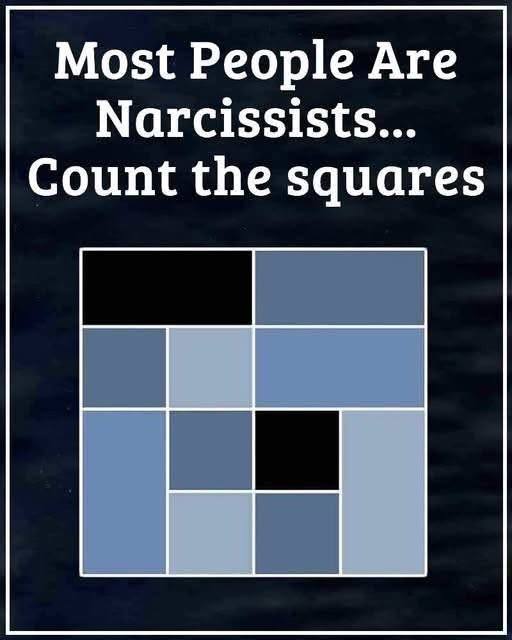
What Counting Squares Reveals About Your Personality
At first glance, the “count the squares” puzzle might seem like just another fun brain teaser floating around social media or puzzle books. But when you take a closer look, you realize this challenge offers more than just a chance to flex your visual skills. It’s also a surprisingly revealing exercise in self-awareness and introspection. The way you approach the task of counting squares can shine a light on your personality traits and how you engage with the world around you.
For many, especially those with more narcissistic tendencies, this puzzle can bring out a fascinating display of overconfidence. These individuals often trust their first instincts without question. They might glance at the image, quickly spot the most obvious squares, and then confidently announce their answer without a second thought. To them, speed and apparent certainty are valued over thoroughness or accuracy. In their minds, getting to an answer quickly is a sign of intelligence and competence—even if that answer isn’t correct.
A Different Approach from Open-Minded Thinkers
On the other hand, more reflective, open-minded thinkers take a very different path. These individuals tend to pause and question their initial responses. They take the time to explore possibilities they may have missed at first glance, and they often revisit the image multiple times to ensure nothing was overlooked. This willingness to slow down, to consider alternative answers, and to embrace the possibility of error indicates a flexible and curious mindset.
For them, the challenge isn’t just about finding the “right” number of squares—it’s about the process. They enjoy the opportunity to look deeper, to challenge themselves, and to learn something new. In life, this mindset translates into a greater openness to new experiences, adaptability in the face of change, and an eagerness to grow from mistakes.
What It Takes to Truly Get It Right
Accurately counting all the squares is no simple task. It demands a patient, step-by-step approach. You start by identifying all the smallest, most obvious squares. Once those are accounted for, you move on to medium-sized squares made up of smaller ones grouped together. Then, you focus on the larger configurations and combinations that are less obvious at first glance. Finally, you must also remember to include overlapping and embedded squares, which are often the most easily missed.
This systematic method mirrors strong problem-solving skills: breaking a challenge into smaller parts, tackling each part thoroughly, and integrating the results to form a complete picture. It requires focus, patience, and a willingness to look beyond the obvious.
Personality Clues Hidden in Your Problem-Solving Style
Your approach to this puzzle can offer surprising clues about your personality. Are you someone who rushes to an answer because you want to appear competent and decisive? Or are you someone who enjoys the exploration process, who accepts that mistakes are part of learning, and who values accuracy over speed?
Those who take their time often demonstrate humility and resilience. They understand that it’s okay not to have the right answer immediately and that careful consideration usually leads to better results. Meanwhile, a rushed approach might point to impulsiveness or a need to prove oneself quickly, even at the expense of accuracy.
Beyond Just a Number
Whether you end up finding 16, 24, 32, or even 40 squares, the final count ultimately matters far less than the journey you took to arrive there. The number alone doesn’t define you—but the process reveals a great deal about your mindset, your values, and how you handle challenges. It shows whether you’re someone who seeks deeper understanding or someone who prefers quick conclusions.
The Bigger Takeaway
In the end, this simple puzzle is more than just a visual game—it’s a mirror reflecting your habits of thought. It challenges not only your ability to see but also your willingness to question, to slow down, and to think critically. Next time you encounter a similar brain teaser, try to resist the urge to rush. Take a deep breath, look again, and explore every possibility before declaring your final answer.
Because sometimes, it’s not the answer itself that defines us, but the path we choose to find it. Your approach to a small puzzle today might echo how you tackle much bigger puzzles in life: relationships, work challenges, personal growth, and beyond. So, ask yourself—what does your answer say about you? And are you willing to look deeper to find out?


